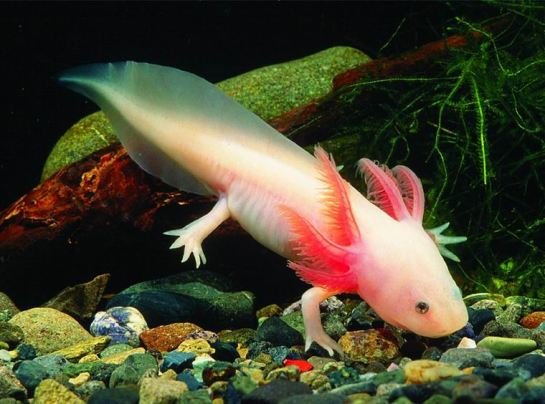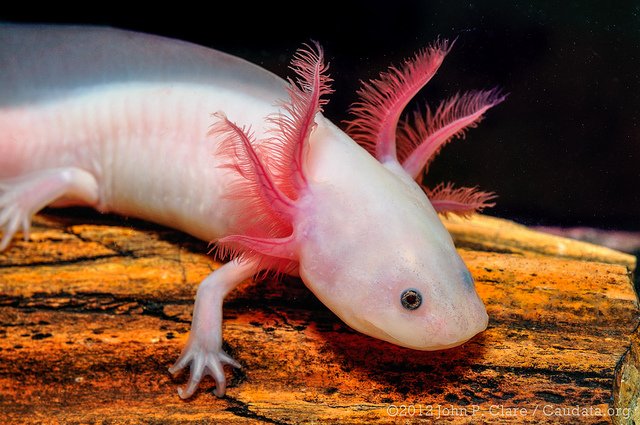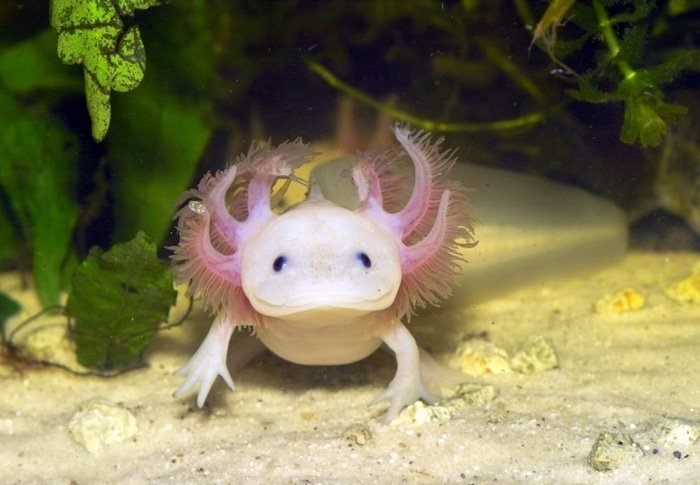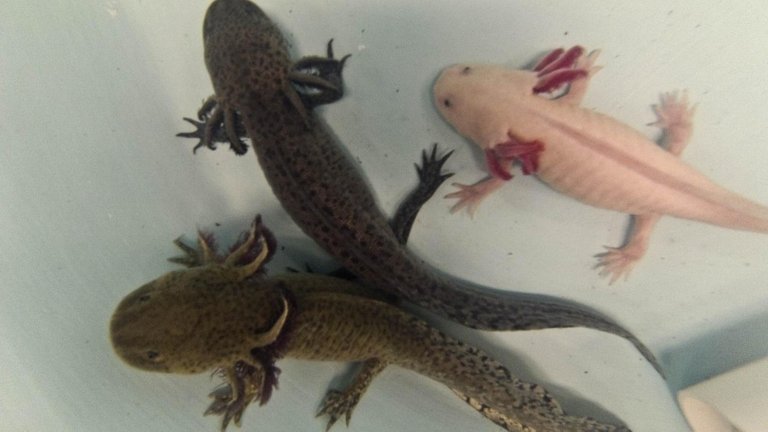This unique exotic animal is sometimes referred to as "Mexican Walking Fish" because it looks like a fish that has hands and feet. However, Axolotl is not actually a kind of fish, but rather a rare salamander in Mexico City. Axolotl (ambystoma mexicanum) is a type of salamander that can spend its lifetime in the form of larvae. Axolotl length can reach 30 cm, but the average size is only 15 cm. Their average body color is black or brownish and many are also albino with a cute color such as pink. These animals have gills that are outside his body.
Axolotl includes lizards that have a long life, Axolotl can live up to 10-15 years and can grow up to 60cm. even once caught a giant Axolotl in the interior Mexico which measuring up to 1.4 meters, the discovery was really surprising but after a thorough examination by the experts concluded if it is only a rare abnormal state (gigantism).
The name Axolotl is taken from the Aztec language meaning water dog. Axolotl is still cousin close to the tiger salamander. Uniquely, these animals metamorphose only when in a state of forced, forced in this case is if where they live the water source to dry, then Axolotl can metamorphose into a landform and if there is water back then Axolotl can return to the form of water.
The terrestrial form of axolotl is similar to its larval form, with gill differences disappearing, tail that is more compress and eyes that stand out. The presence of certain hormones is known to trigger axolotl metamorphose into the form of land reptiles. In addition, the addition of a small amount of iodine into the water can also trigger the same thing.
He can regrow his limbs, fangs, skin, organs, and parts of his injured brain and spine. Some other animals have the ability to regenerate, but only the Mexican salamanders can regenerate so many different parts of their bodies throughout their lives.
Axolotl can be found on Lake Xochimilco and Lake Chalco in Mexico. Later, their populations are threatened by the construction done on the lake to prevent seasonal flooding, so the amount of water in the lake shrinks so that the habitat is disrupted. The entry of fish from other areas introduced by humans also causes the population to shrink. The amount of axolotl in nature is unknown.
But the total population is expected to decline from about 1,500 per square mile in 1998 to just 25 per square mile this year, based on Zambrano scientist research using a mesh device. The long-standing International Union for Conservation of Nature includes axolotl in its annual Red List as endangered. They say these animals can disappear within five years.
How, sad is not it? a very unique animal but its existence on the verge of extinction.




They really are beautiful animals!
thank you very much